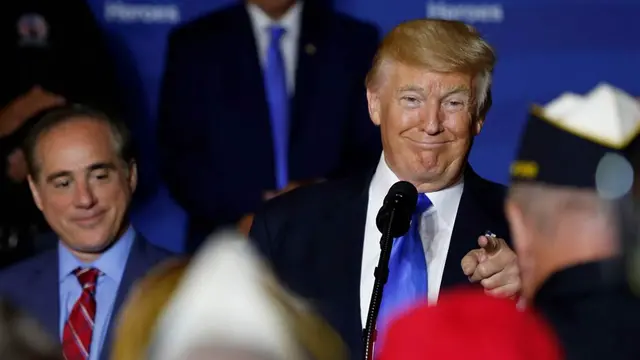Anti-Russia hysteria in Washington reached the next level with new sanctions legislation in Congress. The legislation sharpens tensions with Russia, upsets cooperation with the European Union (EU), and undermines presidential authority over foreign policy.
The highly controversial sanctions legislation is an outcome of the general hysteria in Washington, DC over not only Russia but also over Iran and North Korea. The underlying reason for the anti-Russia sanctions is the maintenance of the US global hegemony of finance capitalism in the face of a changing international situation.
As the world moves toward a multipolar and polycentric international system, the hegemonic position of the US recedes. So Washington seeks to defend its hegemony through economic means and through the military power of NATO.
But the evolving multipolar world includes countries with economic models reflecting national circumstances and characteristics. Globalization as a trend does not mean that countries automatically must reject their own development models and succumb to the hegemony of US finance capitalism.
Russia under President Vladimir Putin and his team is focused on national rejuvenation. This patriotic response to the challenges posed in the post-Soviet era is commendable. But it has triggered a response from Western imperialism, which has sought to isolate and contain the new Russia. The West has sought Russian capitulation to its globalist geostrategic designs.
That the US Congress and certain elite political and financial forces are virulently anti-Russia is no secret to the international community. It is on weekly, if not daily, display in Washington. Cartoonish American politicians hyperventilate on cue from the anti-Russia lobby. The anti-Russia mainstream US media is only too happy to spread the hysteria on front pages and on prime time television.
The sanctions legislation goes beyond earlier legislation which is in force today. The new legislation developed from legislation aimed against Russia and Iran but now includes North Korea. It is the anti-Russia provisions, however, that have clearly shocked the EU.
Sanctions are a form of economic warfare. So far, the US sanctions against Russia were agreed to by the EU which has its own set of sanctions in place. Of course, overall the combined sanctions drastically and negatively impacted on billions of dollars of EU trade with Russia. The US does not have much trade with Russia so it has been relatively unharmed.
In recent months, EU voices against Russia sanctions have been gaining traction. The damage to EU economic interests has been considerable as Russia chose the obvious course of strengthening its domestic manufacturing and agriculture to substitute for EU goods. Additionally, Russia logically expanded its sourcing of agricultural goods to third countries such as Turkey and Brazil thereby cutting the EU out of the supply chain.
The new Congressional sanctions legislation, however, hits the EU very hard and clearly is targeted at damaging major EU industrial sectors such as the oil and gas sector. So a significant split has now developed which has woken the EU leadership to the reality of reckless and unrestrained US hegemonism.
Delusional politicians in Washington have a childlike obsession with economic sanctions and military force as a way to play the schoolyard bully. The era of US diplomatic leadership is long over given the disintegration of Washington's diplomatic capability. The Trump administration may be able to rebuild American diplomacy to constructive ends but this remains to be seen.
Given the major threat to EU economic interests posed by the new sanctions, it is no wonder that EU leaders are undertaking urgent consultations and are developing a firm response if needed.
The simplest response is for the EU not to recognize the US sanctions and to continue with their own commercial relations with Russia. If needed, the EU can begin to impose restrictions on US financial, industrial, and agricultural interests. Of course, the EU should drop all of its anti-Russia sanctions in any event.
The White House must end its disarray and dysfunction and deal firmly with Congress. The president must deliver on his campaign promise to improve relations with Russia and must reject counterproductive and destabilizing sanctions.
 简体中文
简体中文



